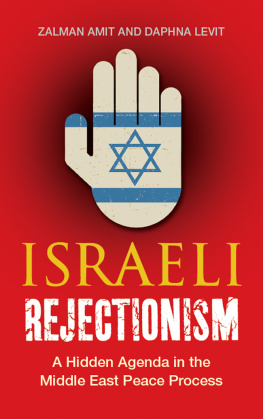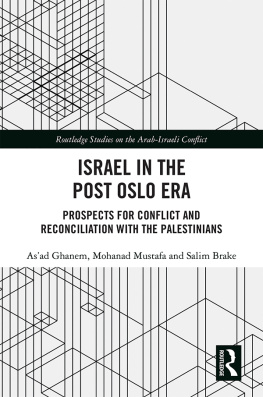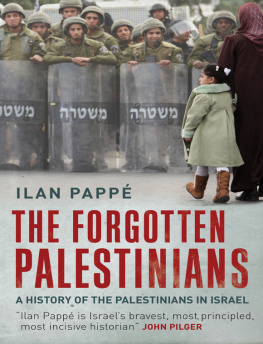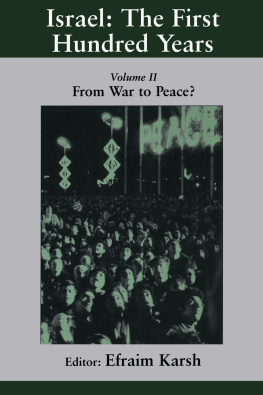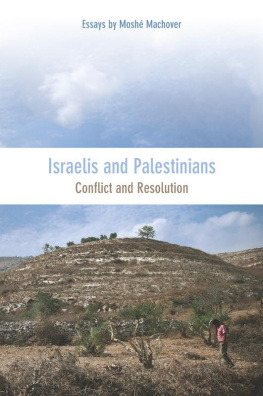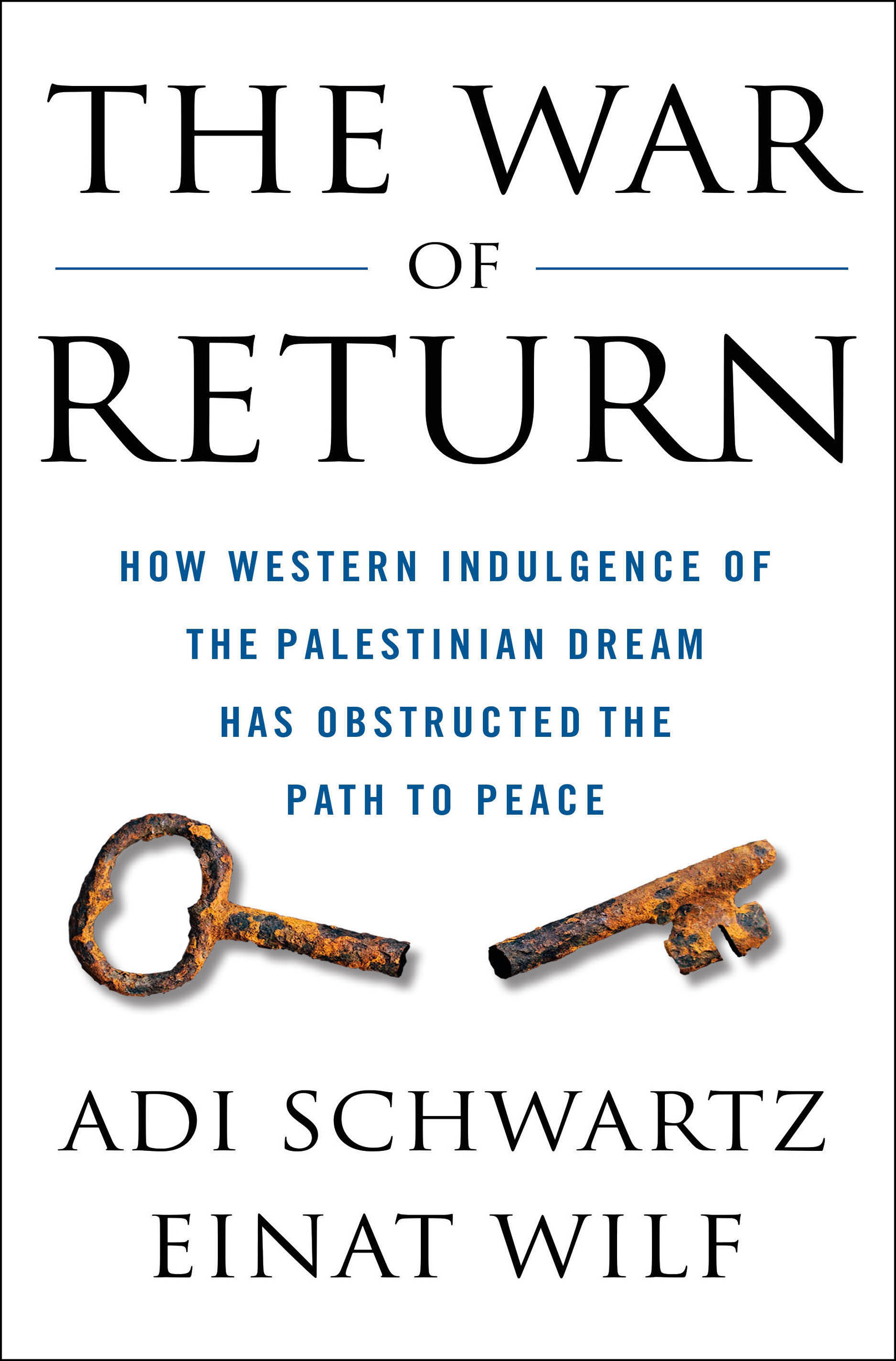The author and publisher have provided this e-book to you for your personal use only. You may not make this e-book publicly available in any way. Copyright infringement is against the law. If you believe the copy of this e-book you are reading infringes on the authors copyright, please notify the publisher at: us.macmillanusa.com/piracy.
In memory of Robert L. Bernstein (19232019), who dedicated his life to the pursuit of peace, justice, and human rights for all.
How could anything new possibly be said about the ArabIsraeli conflict?
As one of the most discussed conflicts on earth, arousing such strong emotions among Jews and Arabs, Christians and Muslims, historians, academics, politicians, and diplomats, it would seem that every detail of the conflict has already been thoroughly examined and debated. Nearly seventy years of failed attempts to solve the conflict, including thirty years of peace negotiations, have left behind an abundance of books, articles, speeches, testimoniesand shattered careers.
Yet, as we discovered in our intellectual, political, and historical journey in the last few years, there is actually much remaining to be said.
We both come from the political left in Israel. Einat was a Member of Parliament on behalf of the Labor party and advised and worked closely with some of Israels most well-known leaders from the peace camp, including Shimon Peres and Yossi Beilin, the architect of the Oslo Accords. Adi worked as a journalist for a decade for Israels well-known progressive daily Haaretz and identified with Israeli left-wing politics.
Both of us have been very strong proponents of the two-state solution and we have supported all major efforts to reach peace based on this formula. Like many Israelis, we grew up believing that the Palestinians wanted no more and no less than Jews didthe right to self-determination in a state of their own. We believed that once the Palestinians would be able to establish their own state in the West Bank and Gaza Strip, there would be peace.
To us and to many Israelis, especially of the political left, the 1990s were years marked by great hope. These were the Oslo years and the beginning of the peace process. In 1992, in the first election in which we were eligible to vote, we welcomed the establishment of the Labor-led government under Yitzhak Rabin. This was the government that entered into the Oslo Accords in 1993 with the Palestine Liberation Organization (PLO) and signed a peace agreement with Jordan in 1994. Despite the horrific suicide attacks perpetrated by Palestinians on Israeli civilians following the signing of Oslo, and the assassination of Rabin, Israelis kept hoping for peace. Those were the Israelis who gave Ehud Barak a landslide victory over Benjamin Netanyahu in 1999. Like them, we followed Prime Minister Barak with anticipation as he went to Camp David in the summer of 2000 to carry out his election promise to sign a final peace agreement with the Palestinians.
But like many on the Israeli political left we became increasingly baffled as repeated efforts at reaching an agreement between Israelis and Palestinians kept failing, even though the proposals presented to the Palestinians were in line with what they said they were seeking. The fact that the Palestinians walked away from two concrete and recent opportunitiesin 2000 and 2008to establish their own state, free of settlements, in the West Bank and Gaza Strip, with a capital in East Jerusalem, started to plant serious seeds of doubt in both of our minds. We assumed that a people who seek independence and a state of their own would seize the opportunity when it presents itself.
But not only had the Palestinians not taken either of these two opportunities to make peace with Israel and have a state of their own, what followed, starting almost immediately after Yasser Arafat walked out of the Camp David peace summit in the summer of 2000, was the Second Intifada: a series of sustained and brutal massacres committed by suicide bombers all over Israel in buses, cafes, and streets.
And so we each found ourselves increasingly doubting our basic assumptions about the IsraeliPalestinian conflictthat this was a territorial conflict that could be solved by partitioning the land into two states, that the Palestinians only wanted a state of their own in the territories, and that the Israeli occupation and the settlements were the primary obstacle preventing peace. We asked ourselves, What went wrong? Is it possible that there was something deeper that we were missing? These questions led each of us to start a process of internal soul searching and, more important, external research and fact finding.
What we discovered actually surprised us both. While hiding in plain sight for decades, one of the core issues in the conflict had been almost totally absent from the consciousness of both Israelis and peacemakers around the world.
The issue of Palestinian refugees, and the Arab and Palestinian demand that those refugees be allowed to exercise what they call a right of return, attracts scant attention. Neither Israels leaders nor its public, and certainly not the international community, spend very much time discussing it. This is in stark contrast to the other core issues. For example, there is endless discussion of the settlements and the military occupation of the territories, which are indeed important; but the Palestinian refugee issue has barely been subjected to any real strategic discussion. There have been no serious attempts at a resolution, or even efforts to place it on the agenda. The problem, in spite of always being cited as one of the core issues of the conflict, has been essentially hidden from view, relegated to the sidelines, left for some vague future date when all other core issues are resolved.
Yet, we discovered that perhaps of all the core issues it is the refugee issue that actually deserves to be front and center. Our research revealed that the Palestinian refugee issue is not just one more issue in the conflict; it is probably the issue. The Palestinian conception of themselves as refugees from Palestine, and their demand to exercise a so-called right of return, reflect the Palestinians most profound beliefs about their relationship with the land and their willingness or lack thereof to share any part of it with Jews. And the UN structural support and Western financial support for these Palestinian beliefs has led to the creation of a permanent and ever-growing population of Palestinian refugees, and what is by now a nearly insurmountable obstacle to peace.
The Palestinian demand to return to what became the sovereign state of Israel in 1948 stands as a testament to the Palestinian rejection of the legitimacy of a state for the Jews in any part of their ancestral homeland. Our research led us to conclude that practically nothing could be understood about the Palestinian position in the peace process and the conflict itselfand no effective steps could be taken toward its resolutionwithout delving deeply into this issue.
Realizing this, we resolved to research, analyze, and describe this issue from its very beginning in the war of 1948 to the present day. By following key historical figures, unearthing new documents, examining key decision points, and providing analyses, our book raises, and answers, the key questions about this overlooked, yet fundamental, issue. Why are there still Palestinian refugees from a war that ended seventy years ago? Why do the Palestinians insist that each and every Palestinian refugee, for generations into perpetuity, has an individual and in fact sacred right to return to the sovereign state of Israel, despite there being no actual legal basis for it? Who and what prevented the Palestinian refugees from being rehabilitated as the Jewish refugees from 1948 were? Was it a lack of interest or money, or were there other, ideological, motives? Is the right of return a real demand or just a Palestinian bargaining chip, which can be bargained away when other demands are met? When Palestinians march for return from Gaza in the direction of Israel, what is it they are actually marching for? What does a right of return mean in the context of a comprehensive peace accord? And if this demand is real, can we move forward and, if so, how?


